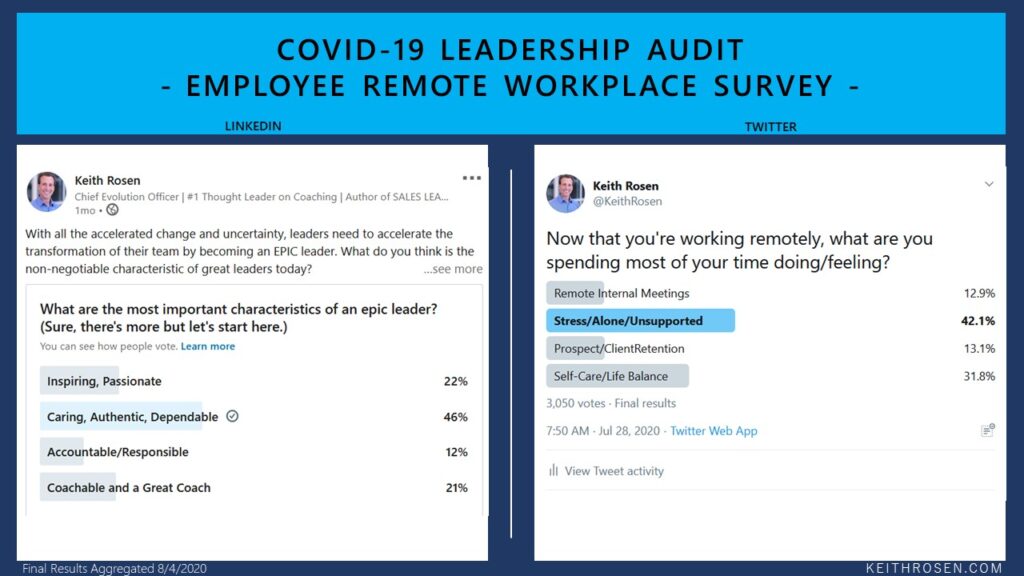 Get Ready HR and enablement. Love is now the dominant value in top companies. We’re not talking about interoffice relationships, but what’s needed to achieve the cultural greatness you seek. What was once a taboo word that triggered fear and HR compliance conversations, is now something human resources and enablement need to reconsider embrace, and even promote.
Get Ready HR and enablement. Love is now the dominant value in top companies. We’re not talking about interoffice relationships, but what’s needed to achieve the cultural greatness you seek. What was once a taboo word that triggered fear and HR compliance conversations, is now something human resources and enablement need to reconsider embrace, and even promote.
Love in the Workplace. HR, Are You Ready?
“Love is the secret to business success and achieving our sales objectives? Keith, are you kidding? That’s exactly what we’re NOT supposed to do or discuss! This sounds like something Human Resources needs to get involved in.”
I get it. Organizations have created many firewalls around love, since it’s most often associated with interoffice relationships and affairs.
The entire landscape of the workplace had changed beyond our imagination. How we work, where we work, the new procedures and compliance policies at work, and how we engage with customers has evolved. Then, it only makes sense for every company to revisit their vision and core values and ask, “Are they still relevant today?”
What is relevant is ensuring you’re embracing love as the new, top company value.
I’m not referring to the typical affiliation I mentioned, but an entirely different way of thinking about the power of love and redefining it in a way that will be embraced by your entire organization in order to create the sustained level of engagement, productivity, success and the company culture you want.
When people say, “This is coming from the heart” or when people talk about empathy, care and the heartbeat of their company, what emotion do you think is fueling this?
Managers and Employees, Living Together?
Our new world requires having managers facilitate and coach in new environments and around unique, critical, and often personal conversations they have never dealt with before.
Compound this with the new office environment and the fact that you’re now living with your team! Not in the physical sense but you’re spending every day virtually jumping from one meeting to the next, and from one person’s remote office or home, and into another.
Today’s calls are now placing managers LITERALLY in their team’s home, and in their remote workspace, as they are in yours!
Because of this changing level of engagement, you have a more in-depth, honest (unless they’re using a virtual background or screen to hide everything) and a clear line of sight into someone’s life that you’ve never had before.
However, how comfortable are you at initiating these types of conversations?
You’re Working In THEIR Home. Are You Ignoring What You See?
Here’s the situation. You’re having a call with Martin, one of your employees. During this particular call, you couldn’t help but notice several concerning observations.
Martin, as you can see in the bottom corner above, showed up to the meeting in a stained, unwashed shirt. He looked as if he hadn’t slept or showered in days. In the background, you notice the absolute chaos he surrounds himself with.
Then, there’s Alice in the top right corner of the picture; the recently divorced account executive who no longer has daycare available for her young children. Alice is now doing her best to be a single mom, balance her responsibilities at home and with her children, while effectively managing her career, as they now are intertwined, and in the same physical location. The stress in her face and body language is difficult to miss.
Finally, Fiona, pictured above, just got out of the shower in her robe, and already has a Bloody Mary in her hand – during at 10am meeting. And, let’s not overlook that she’s multitasking, having another conversation during her video call with you!
The list goes on of what you can observe.
- Messy kitchen/home upkeep
- Tiny living space with many people
- Bills/mail/disarray all over their desk
- Living with parents
- A pet or children
- Stress, mood, being aloof, or engaged
- Their office is their bedroom
- Background noise
After all, you’re hearing and seeing things in an environment you never had full access to before. THEIR HOME!
Love Has Always Been Your Company Value

Is This REALLY such an organizational value shift? After all, love is one of the essential human emotions. It’s what drives us, it’s what connects us. Love is what builds and binds families, communities, nations, and is the cornerstone of peace. Love is what fulfills us, provides us purpose and meaning, and is what makes our life complete and worth living. Love is energy, health joy, fulfillment, peace, connection, care, and ongoing, positive change. Is there anything here that you wouldn’t want to experience at work?
Apply this to your other family. The family you spend even MORE time with than your family at home. I’m referring to your company and your team.
The best leaders coach from their heart, not from their head.
How Do You Define Love?
How many times have you said or heard someone say, “I love my,”
- Manager
- Company
- Customers
- Coworkers
- Job
- Culture
- Team
What’s your first reaction? I sense nothing that would raise an eyebrow with HR.
Yet, most people associate love in the office with, “A feeling a deep romantic or sexual relationship with someone.” Or, “an intense feeling of deep affection.”
Love is also synonymous with:
- A passion and pleasure in something. A love for coaching, sports, music.
- Care
- Treasure
- Used to express affectionate approval for something. “I love that idea!”
While love simply takes on a different form, it is still love.
What’s the opposite of love? Here are the most common responses.
- Hate
- Loathe
- Distrust
The opposite of love is also:
- Fear
- Sadness
- Apathy
- Scarcity
The question is, would you rather have a culture that’s in the presence or absence of love?
What People Want Most From their Manager
A few months ago, I created this COVID-19 Leadership Audit to get an accurate sense of what people want and need most from their manager. I created two Employee Remote Workplace Surveys, one on LinkedIn and one on Twitter. With over 4,000 responses, the validation is clear. The common theme is screaming out loud but are you and your company listening?

Here are the results. When asked:
“What are the most important characteristics of an epic leader?”
46% of respondents said, “caring, authentic, dependable, trustworthy.”
When asked:
“Now that you’re working remotely, what are you spending most of your time doing/feeling?”
42% of respondents said they’re spending the majority of the time, “feeling stressed, alone and unsupported.”
Do I Need to Go to HR First?
Most managers don’t want to turn a blind eye to what they observe, especially if they feel they can help and support others who are struggling to achieve greater success. Managers want to feel comfortable having certain conversations with their employees, even if it’s out of the realm of their career.
The dilemma is, you’ve gotten zero guidance, training, and coaching from your company, HR, enablement, and your manager, around what the new rules of engagement and compliance are, what you can and cannot discuss with employees, and HOW to go about facilitating these new conversations that no one has ever had before, including every senior leader in your organization.
Many companies have already rewritten their HR policies. What may have been a conversation that would require HR to be present, is now a conversation you can feel comfortable having because everyone is now aligned with the new (and legal) rules of HR, engagement, coaching, and transparency.
12 Coaching Conversations Managers Must Master
What NEW conversations do you need to have that you’ve never had before? Here are 12 conversations and topics managers need to learn how to coach, in order to create a successful team of remote, productive, happy champions.
- Interoffice and home conflict
- Fear/Stress
- Disengagement
- Career uncertainty/progression
- Confidence
- Attitude
- Life balance
- Time management
- Organizing their workspace
- Accountability
- Setting boundaries (work/home)
- Relationships
When Your Managers Says, “I Love You.”

During your next meeting, if your manager ends it with, “We have an awesome team. I’m excited about the success we can create, and I love you,” don’t run to HR. Instead, embrace the new definition of love to make it your company’s priority so that everyone can achieve their goals, and create a career and life that, well, you love.




